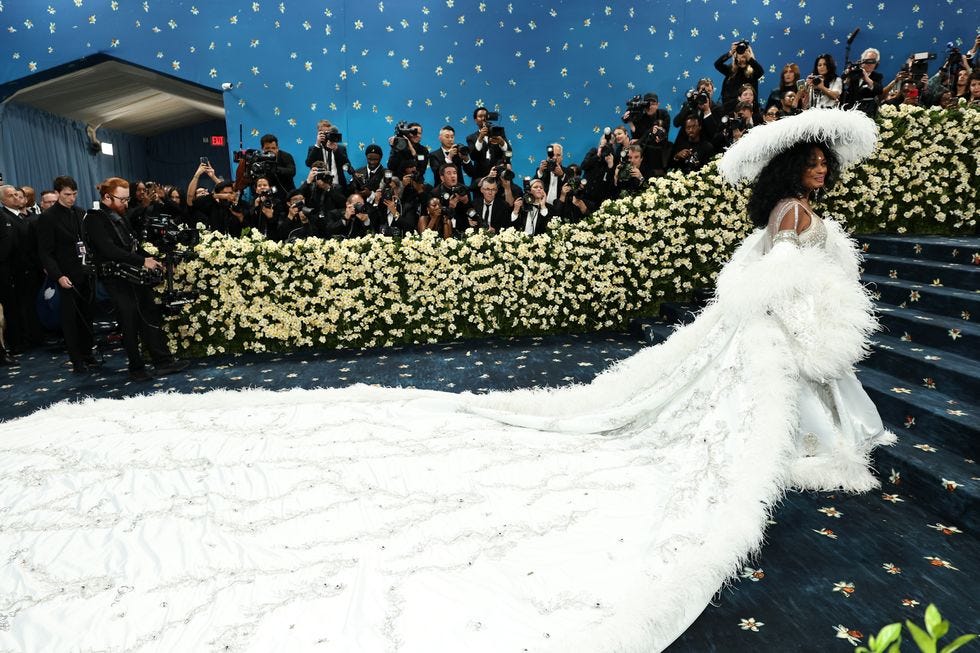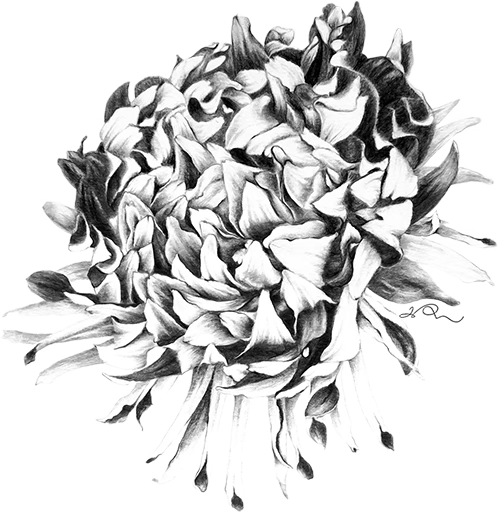Niches are for algorithms. Writing whatever you want is just human.
The writing process and the systems we create in.
Writer’s block is a shadow thief who slips in whispers of self doubt as it steals entire sentences even before they reach a page. It quietly conspires with creative avoidance and self-sabotage.
I have to confess that writing these newsletters for the past few months have been tough. I don’t know if it’s from a lack of focus, an unusually long stretch of feeling stuck, or general malaise about the world, but writing has felt like an exercise in coaxing blood from a stone. The irony of it all is that some of my favorite essays that I’ve written in the past six months have come out of this period of struggle.
But I guess that’s just what the writing process is. A scribble of thoughts and jumbled words that manage to come together through persistence and ruthless editing, just when you’re at your wit’s end trying to shape that mess into something coherent. This, after long periods of staring at the ceiling, trips into the kitchen looking for a distraction, and sometimes a walk.
Writing, like any other creative endeavor, is exercising a muscle. It’s woven with thought and breath and grows with the rhythm of regular practice. The longevity of this practice, as I clock in two and a half years of sending out newsletters every week (with a smattering of a few missed weeks), relies on being unforgiving about making my writing days sacred. No meetings, appointments, or errands.
I don’t know if I’m slow, average, or somewhere in between, but I’m not one who can bang out a great essay in just a few hours. It takes me two full days to produce a newsletter that lands in your inbox every Wednesday morning—and when I say two days, I mean roughly 25 hours. When I finally hit that send button on Wednesday mornings, I hold my breath for a second every single time, still, even years later.

As creators, why do we keep showing up? As readers, what is it about an artist or writer that pulls us in?
I started this newsletter because I needed an anchor to catch myself from sinking and becoming too unmoored as I transitioned from a full time job to freelance and now, just occasional project work. But over the years, this anchor that I threw into unknown waters has now become the buoy that keeps me afloat when waters become unsteady. I never wanted this to become like a job. I wasn’t thinking that this newsletter would become my identity. The weight of that possibility and the small stream of income that it produces makes me nervous. I don’t like being so platform-dependent; it’s uncomfortable to rely on paid subscriptions to pay for groceries or a medical bill, but here we are.
There are many things I love about Substack, the first being this community by far, but I can’t ignore that Substack as a platform isn’t without its problems. We all know that it can all go to shit. Starting early on Etsy and witnessing the evolution of that platform as a seller for twelve years was a lesson in how investor-driven changes don’t always serve creators. But while Substack still exists in its current incarnation, my gratitude for what I’ve gained is truly heartfelt. Writing every week has given me a sense of purpose in this liminal time, and the community of readers and writers like you has made that journey a lot less lonely.
I was asked (again) recently if I planned my newsletters in advance. I do not. I’m sure some sort of pre-meditated content calendar would probably make life a little easier, however, I typically fly by the seat of my pants. I write whatever strikes me when I sit down each Monday morning. The beauty of being a niche-less newsletter is that I’m able to do that.
There’s freedom in writing whatever you want. Early blogging proved that it can work, but SEO and social media forces us to pigeon-hole ourselves into niches if we want to be seen. Algorithms reward predictability, consistency, and repetition because they’re calculated by machines, not humans. It won’t know what to do with your content or who to serve it to if you don’t play by its rules.
While regular practice is the discipline that nurtures creativity and drives creative breakthroughs, the kind of repetition that feeds algorithms is less about art and more of a hollow game of chasing visibility. I was never able to beat the IG algorithm because I wasn’t always willing to play along. The same kind of imagery, the same content, posted neatly in a grid ad nauseam. For someone who thrives on exploring many different things, the prospect of posting strictly within a niche bored me to tears.
So, can it work here? Can you write without a niche and be “successful?” Is this a newsletter about Culture? Parenting? Art & illustration? It isn’t singularly any of these topics, so why do we have to choose between categories that don’t always feel right?
Resisting a niche, even here, can feel punishing when you see category leaderboards. I’ve worked long enough in tech and product to know that gamification works. It works because it introduces competitiveness into disciplines that should have no business being competitive. Art is so deeply subjective, personal, and vulnerable, but we live in a world where competition drives engagement and systems reward metrics. Likes and shares all increase visibility and algorithms rank it by encouraging replication of what’s already successful. It doesn’t always reward originality.
These are all psychological hooks to get us addicted, but find me someone who could make a convincing argument that ranking, as category leaderboards do, incentivizes us to create with more passion—for more views, yes, but for creative fulfillment? It only nudges us into a more competitive mindset of hierarchy and comparison. Are we writing for the algorithms or are we writing for humans?
We live in a world with systems that impose competition as we compete for the attention spans of readers, publishing contracts, and wall space in galleries. Resources to fund the arts is also becoming increasingly scarce. But art is not a contest and creativity thrives on exploration and personal truth. Shouldn’t our writing as multifaceted individuals reflect that?
So, forget niches if that’s not your thing. Resisting is possible. Niches are for algorithms; writing whatever you want is just being human. Growth might be slower and your work might not go viral, but if you’ve moved even a single person with your work, I promise that this genuine connection will feel a million times better than a few thousand likes.
The last of the Spring blossoms
I posted some of these photos on Notes, but you know, algorithms, so sharing them here too because the blossom season was too good not to share. It was also a short one as the winds took so many petals down.
P.S… Happy Mother’s Day ❤️
Related reading
A whole bunch of links & recommendations
To read:
“Not Too Sweet” or Too Sweet to Fail? (Taste)
“The great sweetification” of Asian cuisines. There was no denying that during my trip to South Korea two years ago, I noticed how sweet much of the food was—and we’re talking in traditional savory dishes, not desserts. We were so perplexed by this trend.Sorry, hiding your phone won’t stop your procrastination (Popular Science)
Ok, so if phones have rewired our brains, then what.Can animals make art? (The Conversation)
I loved this and after reading, I’m going to say they can!Hearts beat - Punk rock saves (Domestic Left)
and I are roughly the same age and it shows because we often trade comments on each other’s newsletters about experiences we’ve had in common. This essay on going to concerts solo took me back around twelve years ago during a period when I used to go to shows by myself.Where do the mixed girls without minjok go? (The Social Life of Beauty)
on Threads last year and happily subscribed to her Substack as soon as she launched one. This piece on her Black & Korean identity is a beautiful and vulnerable essay on what it’s like to be a mixed race Korean adoptee and not feeling welcomed by the Korean community.
I metMet Gala Breaks Record With $31 Million Raised (WWD)
The Met Gala always draws its share of criticism every year with its show of celebrity culture and excess, but what some people don’t realize is that the gala is a fundraiser that raises money for The Costume Institute. In the face of federal funding cuts and war against DEI, this year’s theme, “Superfine: Tailoring Black Style” was a statement.
Speaking of the Met Gala, everyone was speculating whether Lisa from BlackPink was actually wearing underwear with the likeness of Rosa Parks, but turns out maybe no. Still, I don’t why anyone (it was Pharrell Williams) thought sending her down the blue carpet wearing underwear with anyone’s faces across her crotch was a good idea. I think my favorite look was Janelle Monae for her trompe l'oeil overcoat that revealed a second outfit. But the real winner for me was Diana Ross because she—or her hair—is so intertwined with my dad’s memory. He was her wig supplier for over 20 years and I’ll never pass up an opportunity to share that. DIANA!
To make and eat:
Chicken Marbella (Silver Palate Cookbook via Panning the Globe)
A comfort recipe from our well-worn copy of the Silver Palate Cookbook. Marinated in capers, prunes, white wine, and olives, this is one of our favorite chicken dishes.
(P.S. disclosure that the book link is an affiliate link from bookshop.org)
What I’m watching:
Severance (Apple TV)
Just finished season 2. Ok, so Severance is a show that I think I’m supposed to love, but I dunno…I like it just okay? Or maybe I wasn’t in the right headspace for such a dystopian series on severing consciousness of our work and personal lives. The dehumanization of it was a little too depressing. The production on this show, however, is top notch.Pachinko Season 2 (Apple TV)
The cinematography and lighting in some of the scenes in Min Jin Lee’s novel adaption really took my breath away. No word if it’s been renewed for Season 3 yet.Étoile (Prime)
I’m just here for the dance scenes amid the New York and Paris backdrops. The acting is sorta meh and the dialogue fast and rambly in that Amy Sherman-Palladino/Dan Palladino way. A few “Gilmore Girls” actors are in the show if you’re a fan of Stars Hollow (and I am).
To buy and use, or give:
Loop earplugs - Why yes, I use these when I can’t get to sleep if my spouse is breathing a little too loud in his blissful slumber. A nice little upgrade from the cheap, foam earplugs I used to stuff in my ears.









Jenna, this essay was right on time! I needed this reminder as I sit here stumped about the newsletter I am supposed to publish today. Much like you, I started this substack as a creative outlet while I transition (empty nester to ??? Still figuring that part out). Writing has always felt intuitive and emotional. Oftentimes, very spontaneous; thinking in niches and content pillars doesn’t allow for that level of freedom.
As a beauty brand founder and creative director, creating content has always been about niching down and a culture of competition—content pillars, metrics, engagement, trending topics. It becomes debilitating. I realize I’ve been conditioned like a serial dieter counting points long after quitting the Weight Watchers program. I am constantly reminding myself—continue to enjoy this and don’t let it become a job (i.e., albatross around my neck). But it’s difficult to operate in that space when money is thrown into the mix. “Why not make money doing something you love?” they say. Because I’m not sure how to do that without losing a little (or a lot) of the love that brought me here to begin with. It happened with fashion when I opened a boutique in Chicago, it happened with beauty when I founded my beauty brand. Beauty—something I once thought of as self-care, now oftentimes, is the reason I need self-care.
So when it comes to this—my Substack—I don’t want to be bound by the same constraints. I am going to put a Post-it note on my laptop screen that says, “You are writing for humans, not the algorithm.” You have definitely moved *this person* with your work! And last but not least, thank you so much for the shoutout, it means so much! 🤎
Fuck leaderboards and algorithms and SEO. They take the fun out of everything. You do you!